Our Inspiration
Egypt and the broader Arab realm boast titans of culture and influence. Individuals who have profoundly shaped their communities and left indelible marks on the global stage. We aim to spotlight and, perhaps, acquaint you with some of these luminaries. These are the guiding spirits of our society.Darwīsh of the Month
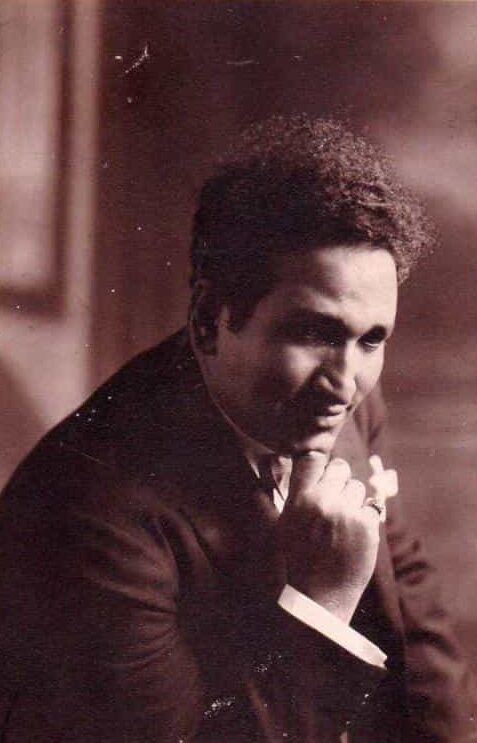
Sayyid Darwīsh El-Baḥr
Egyptian Singer and Composer
A Melodic Soul: A century of harmonizing hearts and souls.
Sayyid Darwīsh, often hailed as the “Father of Modern Arab Music,” possessed a unique ability to weave traditional Egyptian motifs with modern musical techniques, creating a tapestry of sound that resonated deeply with his audience. His melodies, profound and brilliant, serve as an enduring source of inspiration, beauty, and national pride. Born in 1892 in Alexandria, he rose to prominence in a period of intense nationalistic fervor, and his music became synonymous with the aspirations and identity of the Egyptian people. Despite his short life, ending tragically at the age of 31, he has left us with a legacy that cannot be quantified. His work has not only influenced Egyptian art but has also left an indelible mark on the broader Arab music scene for the past century.
As we reflect on a century since his passing, we pay tribute to a remarkable artist whose melodies will forever transcend the ages, by establishing this society in his name. The Sayyid Darwīsh Society aims to preserve, promote, and perpetuate his artistry, ensuring that future generations remain connected to the essence of Egyptian cultural heritage. Our mission is to rekindle Egypt’s rich, complex, and prolific history of artistic and cultural heritage, honoring the genius of Sayyid Darwīsh and all that he embodied.
The Society’s Darawīsh
In the tapestry of our productions and social assemblies, we aim to cast a spotlight on a rich pantheon of extraordinary Egyptians, each of whom has woven the profound essence of the Egyptian soul into the very fabric of their endeavors. What follows is a curated selection of our Elite Favorites—a homage to those luminaries whose artistry has not only captivated us but also inspired countless others.
Venture further, and you will discover our Gallery of Greats, a compendium of virtuosos whose ingenuity in their respective crafts has left an indelible mark on the cultural landscape. These maestros have been carefully chosen because they epitomize the zenith of artistic achievement and continue to ignite our passion and admiration through their remarkable contributions.
Join us in celebrating these icons, each a beacon of inspiration, who collectively uphold and enrich the legacy of Egypt’s vibrant cultural heritage.
Darawish Menu
Elite Favorites
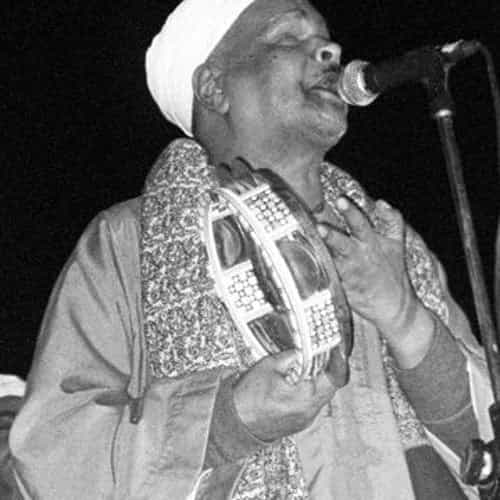
Shaykh Aḥmad Barrayn
Egyptian Sūfī Singer and Lyricist
1925 – 2015
Hailing from Egypt, Moḥammad Moḥammad Aḥmad ʿOsman, widely recognized as Sheikh Aḥmad Barrayn, stands as a beacon in the realm of religious and Sūfī chanting. With a voice that melds depth and devotion, his recitations elevated listeners, turning mere words into soul-stirring spiritual journeys. His artistry garnered acclaim not just in the Arab world but also across European nations. As a result, Sheikh Barrayn’s unparalleled commitment to Islamic artistry and his profound spiritual contributions continue to inspire and resonate, ensuring his legacy remains luminous across generations.
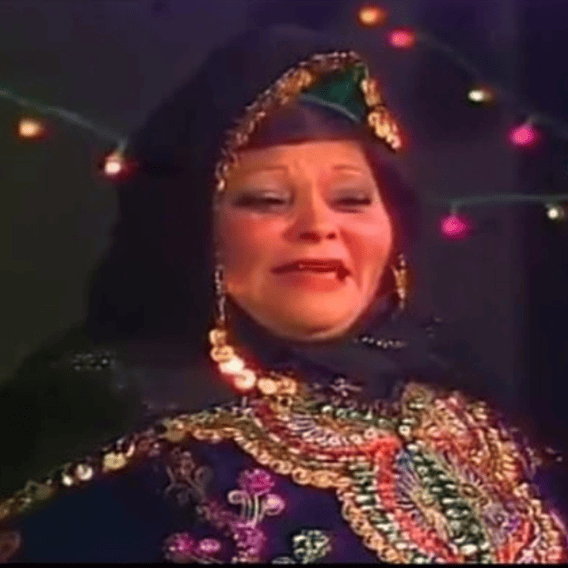
Khaḍrā'
Egyptian Folklore Singer
Emerging from the vibrant cultural backdrop of early 20th century Egypt, Khadra Moḥammad Khedr stood as a beacon of talent and artistry. Her mellifluous voice, combined with her charismatic on-screen presence, endeared her to a wide spectrum of audiences. This dual prowess allowed her to seamlessly transition between singing and acting, making her a household name. Khedr’s innate ability to convey deep emotions, whether through song or cinematic performance, set her apart in a competitive industry. As a result, her rich contributions to Egyptian arts continue to be revered, securing her place as an iconic figure whose influence reverberates through time.
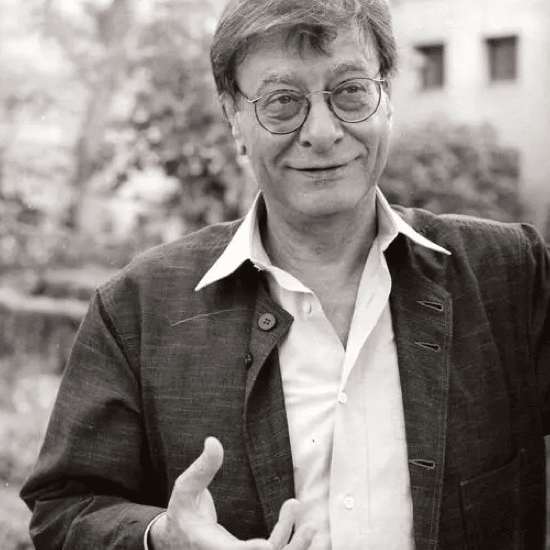
Maḥmūd Darwīsh
Palestinian Author and Poet
Born in the village of al-Birwa in Galilee, the prodigious Mahmoud Darwish’s literary prowess resonated far beyond the confines of his homeland. Serving as a beacon of resistance literature, his evocative verses poignantly capture the core essence of Palestinian identity, embodying displacement, and a deep-seated longing. Widely translated, his seminal works, including “Identity Card” and “I Come From There,” have touched countless hearts, effortlessly transcending international borders. Darwish’s profound influence and his unparalleled ability to articulate the collective Palestinian experience ensure his enduring, esteemed position in the pantheon of global literature.
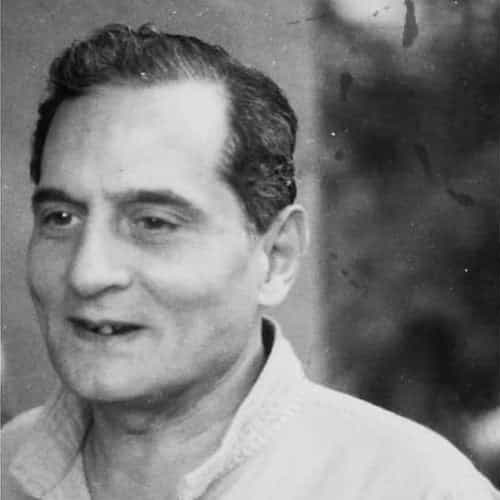
Fu'ād Ḥadad
Lebanese-Egyptian Author and Poet
Fouad Haddad, a pioneering Egyptian poet, left an indelible mark with his stirring verses that intertwined the colloquial with the classical, reflecting Egypt’s vibrant heart. Born on August 23, 1927, Haddad’s poetry resonated with the rhythmic pulse of everyday life, capturing the spirit of Egyptian identity and struggle. His collaboration with composer Sheikh Imam enriched the cultural tapestry of the nation, as their songs became anthems for social change and political expression. Haddad’s work, etched with the fervor for freedom and justice, cements his standing as a literary giant in Egypt’s Hall of Fame, celebrated for his poignant contributions to Arabic literature.
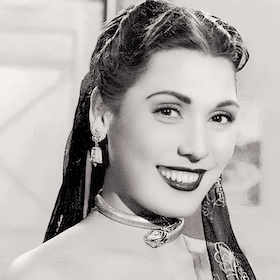
Ṭāḥiyya Kariokka
Egyptian Dancer and Actress
Tahiyya Kariokka is an emblematic figure in Egypt’s cultural pantheon, renowned for her mastery of dance and her indelible impact on Egyptian cinema. Born Badawīyah Muḥammad Karīm ʿAlī al-Nidānī in 1919, she rose from humble beginnings to become one of the most celebrated dancers of her time, revered for her charismatic performances and unique style that blended traditional Egyptian dance with her own flair. Her legacy in over 300 films extends beyond entertainment; it encapsulates the golden era of Egyptian cinema. Tahiyya’s contribution to the arts has made her a household name, earning her a venerable place in Egypt’s Hall of Fame as a luminary who forever shaped the nation’s artistic heritage.
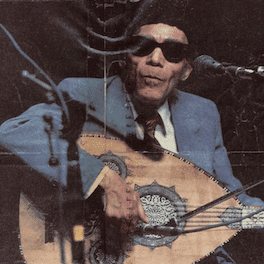
Shaykh ʿImām Muḥammad ʿĪsā
Egyptian Composer and Singer
El Sheikh Imam Moḥammad Aḥmad ‘Eissa, a revered Egyptian composer and singer, became the voice of the people with his poignant melodies and incisive lyrics. Born in Giza on July 2, 1918, Sheikh Imam’s music echoed through the alleys of Cairo, capturing the struggles and aspirations of the common folk. His partnership with the poet Ahmed Fouad Negm birthed anthems of resistance and hope during times of political unrest. Despite facing censorship, his songs remained a beacon of resilience, inspiring activists and dreamers alike. Sheikh Imam’s enduring influence on Egyptian music and social consciousness solidifies his legacy as a stalwart in the Egyptian Hall of Fame, celebrated for his artistry and courage.
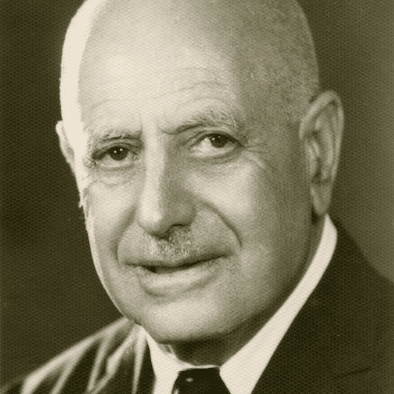
Rāghib Moftāḥ
Egyptian Musicologist and Coptic Scholar
Ragheb Moftah, born in Cairo in 1898, is an icon in Egypt’s cultural history, acclaimed for his unwavering commitment to the preservation of Coptic liturgical music. An esteemed scholar with a profound dedication to his heritage, Moftah’s most impactful achievement was the meticulous transcription and recording of the Coptic liturgy, an endeavor he accomplished with international collaboration, including experts from the Library of Congress. His work resulted in an essential archive, safeguarding Egypt’s ancient Christian chants for posterity. Moftah’s legacy, as a guardian of Egypt’s Coptic Orthodox spiritual melodies, has firmly established his esteemed status among the luminaries in Egypt’s history.
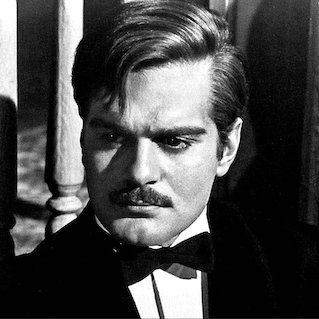
ʿUmar al-Sherīf
Egyptian Actor and International Film Star
Omar Sharif, Egypt’s charismatic beacon of cinematic excellence, mesmerized audiences worldwide with his smoldering presence and prodigious talent. Born Michel Demitri Shalhoub on April 10, 1932, Sharif’s transition from national heartthrob to international icon was heralded by his role in “Lawrence of Arabia.” His portrayal of Sherif Ali earned him global acclaim and set the stage for a storied career, including a memorable performance in “Doctor Zhivago.” Sharif’s versatility shone across continents, transcending cultural barriers and cementing his place as a cinematic legend. His legacy endures, epitomizing the golden age of Egyptian film and the allure of Hollywood’s classic era.
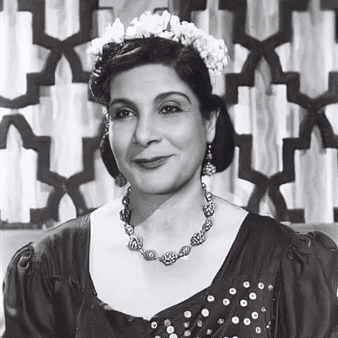
Marī Mounīb
Lebanese-Egyptian Actress
Marī Salīm Ḥabīb Naṣrallāh Mounīb, renowned in the annals of Egyptian cinema, captivated hearts as an illustrious actress and enchanting singer. Born on February 11, 1905, Mounib’s vibrant career spanned theater and film, where her comedic talent and charismatic stage presence shone brightly. She bridged the gap between the silent film era and talkies, adapting with grace and skill. Her memorable performances in classics like “El Naseh” solidified her status as a cultural icon. Marie’s legacy as a pioneering spirit in Egyptian entertainment endures, inspiring generations with her enduring portrayal of warmth and mirth, making her a cherished legend in Egypt’s rich tapestry of stars.
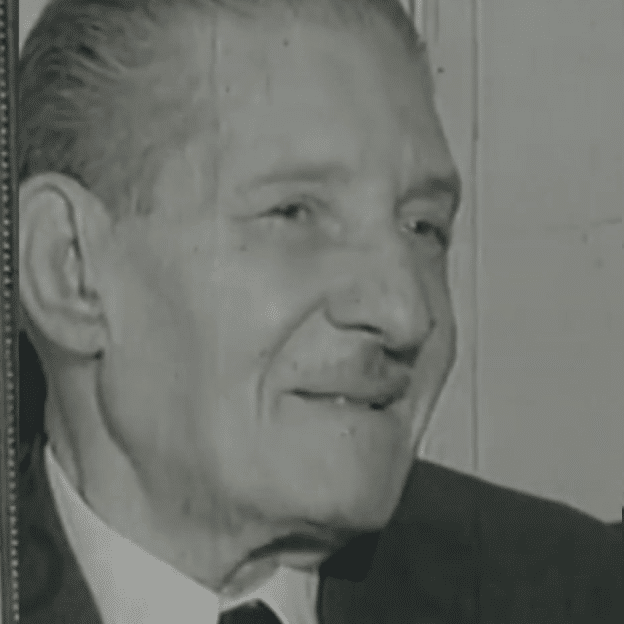
Badi' Khayri
Egyptian Lyricist and Playwright
Badi’ Khayri, an illustrious luminary in Egyptian theatre and cinema, carved his niche as a master playwright and actor, shaping the comedic landscape of his era. Born on December 9, 1893, Khayri’s prolific career was marked by an adept ability to blend satire with social commentary, earning him the adoration of audiences and the respect of his peers. His collaboration with Naguib el-Rihani, producing masterpieces like “Kesh Kesh Bey,” left an indelible mark on Egyptian entertainment. Khayri’s wit and ingenuity transcended the stage, influencing generations of artists and writers. His legacy, as a cornerstone of Egyptian comedic tradition, secures his place among the nation’s most treasured cultural icons.
Gallery of Greats
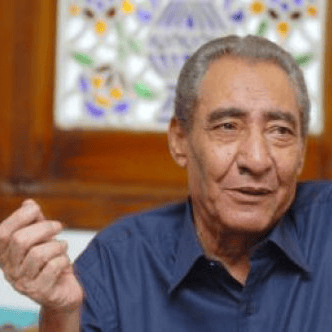
ʿAbd al-Raḥmān al-ʿAbnūdī
Egyptian Poet and Lyricist
Emerging during a period of socio-cultural flux in Egypt, Abdel Rahman El-Abnudi’s poetic prowess skillfully captured the heartbeats of everyday Egyptians. His colloquial verses, infused with realism and empathy, found their way into songs performed by Egypt’s musical legends. A voice for the voiceless, El-Abnudi’s consistent advocacy for the underprivileged and disenfranchised not only enriched his literary contributions but also cemented his stature as a beloved and socially-conscious poet in the nation’s literary landscape.
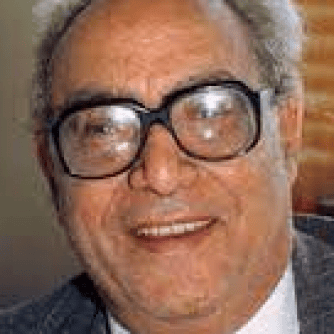
Lū'īs ʿAwād
Egyptian Poet, Writer and Thinker
Born in the early 20th century, Louis Awad stands as a pivotal figure in the annals of Egyptian literary and intellectual history. His contributions to modernizing Arabic literature were profound, pushing boundaries and introducing fresh, progressive perspectives. Awad was deeply immersed in Western philosophical paradigms, and he ardently sought to weave these concepts seamlessly into Arab intellectual discourse. His writings, a blend of tradition and modernity, have left an enduring impact, showcasing his unwavering dedication to cultural and intellectual advancement in the Arab world.
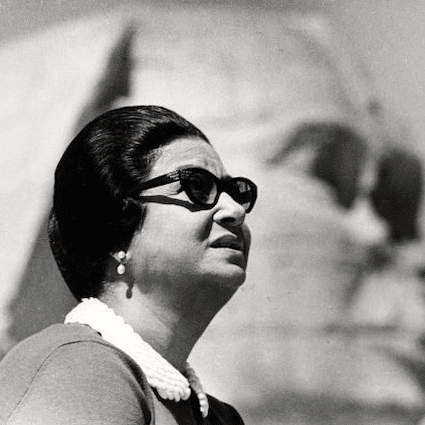
Umm Kulthūm
Egyptian Singer
Hailing from the bustling streets of Cairo, Fatma Ibrāhīm al-Sayyid al-Beltāgī, universally celebrated as the “Kawkab al-Sharq” or Star of the East, was a luminary in the firmament of Egyptian music. Her unparalleled vocal prowess, coupled with her ability to evoke profound emotions, made her a household name, transcending borders and generations. Over her illustrious career, which spanned half a century, she not only contributed to the golden era of Arab music but also left an indelible mark, solidifying her legacy as one of the defining voices in the annals of 20th-century Arab musical history.
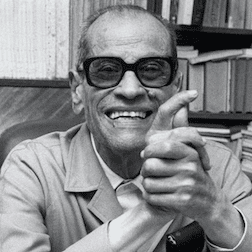
Nagīb Maḥfūẓ
Egyptian Writer and Novelist
Naguib Mahfouz, the literary colossus of Egypt, sculpted narratives that painted the human condition with unparalleled depth. Born on December 11, 1911, Mahfouz bestowed upon the world a treasure trove of novels, capturing Cairo’s spirit across time. His magnum opus, the Cairo Trilogy, offered a penetrating look at Egyptian society, securing him the 1988 Nobel Prize in Literature. His storytelling, a tapestry woven with the threads of realism and philosophy, deeply influenced Arabic fiction. Mahfouz’s profound insights into life’s complexities make him an eternal figure in Egypt’s Hall of Fame and a beacon of global literature.
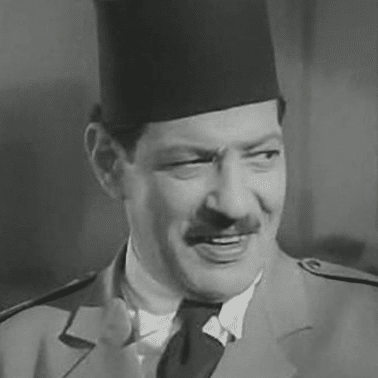
Nagīb al-Rīḥānī
Egyptian Composer, Singer, and Actor
Naguib Al Riḥany, emerging from Cairo in the late 19th century, established himself as a pivotal figure in Egyptian entertainment. With his versatile talents spanning music, cinema, and theater, his comedic roles became the talk of the town, leaving audiences spellbound. Additionally, his groundbreaking musical endeavors, which seamlessly merged age-old Egyptian tunes with contemporary Western influences, created a unique sonic tapestry. This fusion not only highlighted the dynamic transformation of Egyptian music but also affirmed Al Riḥany’s role as a visionary, bridging and celebrating multiple musical worlds.
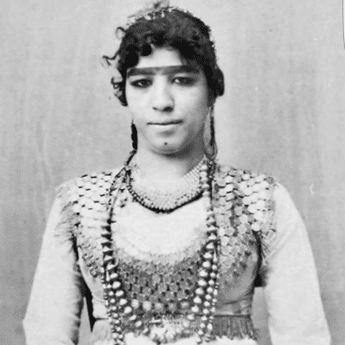
Bambā Kāshār
Egyptian Dancer
Bamba Kashar, born in 1860, stands as a titan in Egypt’s raqs sharqi dance heritage. Emerging from a distinguished family, she reigned as the “dancer of kings and sultans” for over half a century. Her signature performance involved dancing with a tray of gold atop her head, setting her apart in the realm of artistry. Beyond her dance prowess, Kashar was a trailblazer, introducing art festivals like the acclaimed Zar Concerts to Egypt. Her lasting impact on Egyptian culture solidifies her esteemed position in history.
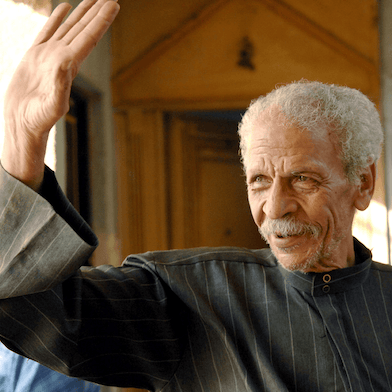
Aḥmad Fu'ād Negm
Egyptian Poet
Aḥmad Fouad Negm, a revered figure in Egyptian literary circles, was celebrated for his witty and often satirical verses penned in the colloquial Egyptian dialect. Throughout his life, he remained a fearless and vocal critic of social injustices and rampant political corruption. This bold stance earned him a dual legacy of deep admiration from many, while also courting significant controversy. Nevertheless, his poignant works found resonance with the public, being widely recited and transformed into songs that echoed in the hearts of the masses.
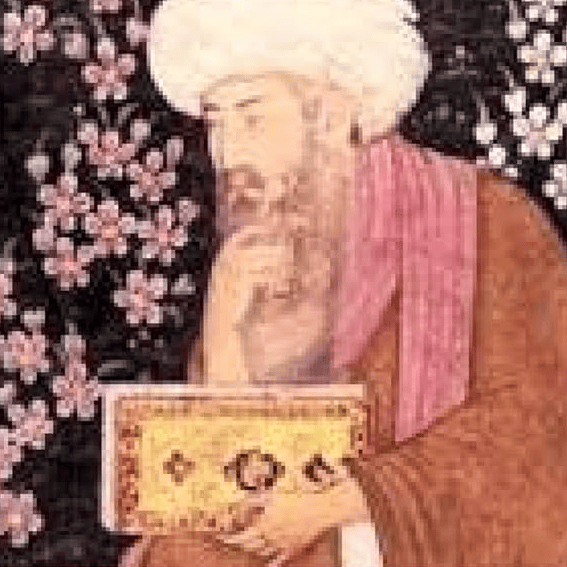
Ibn al-Fāriḍ
Egyptian Sūfī Poet
Umar ibn ʿAlī ibn al-Fāriḍ, a luminary born in Cairo’s intricate tapestry of the 13th century, is celebrated as a titan in the annals of Egyptian Sūfī literature. His evocative mystic poetry, rich with sentiments of divine affection and profound yearning, found a cherished place in the hearts of academics and everyday people alike. Among his vast body of work, the “Wine Ode” shines as a crowning jewel, consistently drawing admiration for its deep spiritual resonance, vivid imagery, and timeless lyrical elegance that continues to inspire across generations.
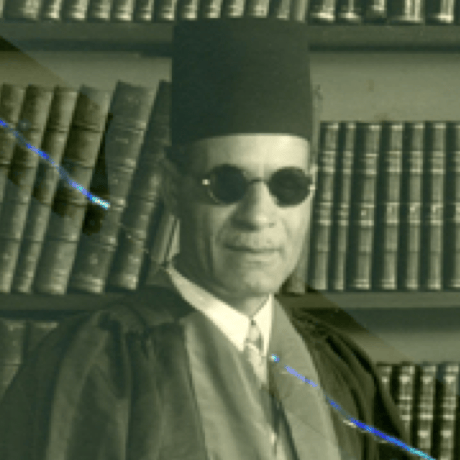
Ṭāhā Ḥusayn
Egyptian Writer and Intellectual
Taha Hussein, an intellectual titan of the Arab world, was a beacon of enlightenment and a proponent of education and critical thought. Born on November 15, 1889, in Minya, he overcame blindness to become one of Egypt’s most influential thinkers and writers. Known as the “Dean of Arabic Literature,” his prolific output and reformist ideas challenged traditional narratives and advocated for cultural and educational renewal. His seminal work, “The Future of Culture in Egypt,” laid the foundations for modernist trends in Arabic literature. Hussein’s indomitable spirit and enduring works firmly enshrine him in Egypt’s Hall of Fame.
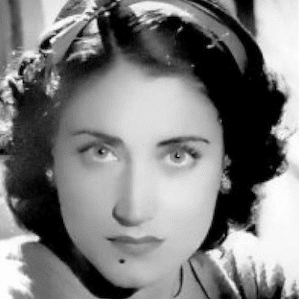
Asmāḥān
Egyptian Singer and Actress
Amal al-Aṭrash, better known by her stage name Asmahan, was the talented sibling of the illustrious Syrian-Egyptian singer Farīd al-Aṭrash. Rising to prominence in the 1930s and 1940s, she effortlessly combined her captivating voice with her radiant beauty and magnetic charisma, establishing herself as a cinematic and musical icon. Though her life was tragically brief, Asmahan’s contributions to Arab music and cinema continue to inspire and resonate, sealing her legacy as a timeless star of the Arab world.
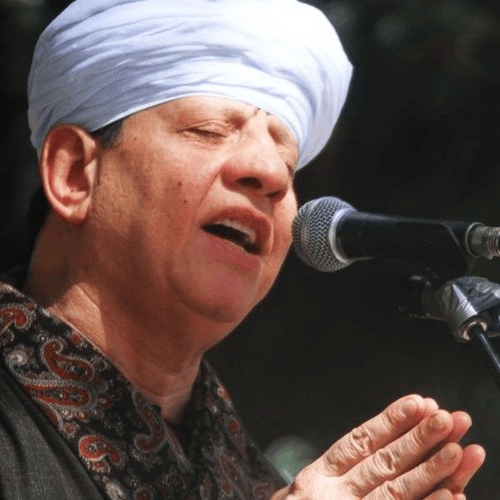
Al Shaykh Yāssīn al-Ṭōḥāmī
Egyptian Sūfī Singer
Al Sheikh Yassin El Tohamy, hailing from Egypt’s rich tapestry of spiritual artists, stands tall in the realm of Sūfī music. His soul-stirring renditions, imbued with fervor and deep spirituality, not only reflect his unwavering devotion to the divine but also captivate audiences worldwide. As a torchbearer of this sacred tradition, he continues to play a pivotal role, bridging ancient Sūfī chants with contemporary listeners, ensuring the timeless essence of this art form thrives in modern times.

Fairūz
Lebanese Singer
Nūḥad Wadīʿ Ḥaddād, universally known as Fairuz, is a beacon in Lebanese music, affectionately termed “Rouh Lebnaan” or Soul of Lebanon. With a voice that intertwines emotion and melody, she has serenaded generations, establishing herself as an enduring pillar in the Arab music landscape. Her versatile repertoire, touching upon tender love ballads to stirring patriotic anthems, showcases her unparalleled ability to resonate with diverse listeners, solidifying her legacy as a timeless voice of the Arab world.
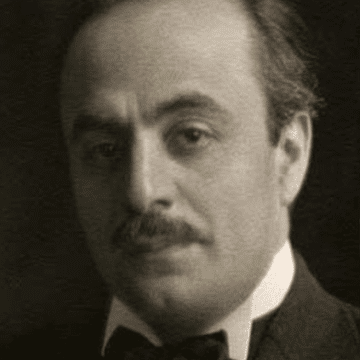
Khalīl Jibrān
Lebanese Author, Poet, and Philosopher
Khalil Jibran, born in the mountainous region of Bsharri, Lebanon, emerged as a literary luminary with works like “The Prophet” defining his legacy. Delving deep into the human experience, Jibran’s poignant writings on love, freedom, and spirituality transcend cultural boundaries. His universal messages, rendered in evocative prose, have found resonance across continents, making him a cherished figure in global literature, with translations that continue to touch the hearts of readers worldwide.
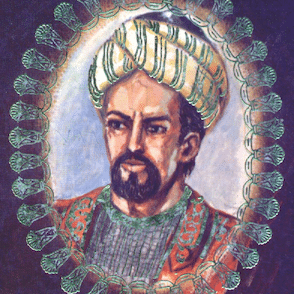
Al-Mutanabbī
Iraqi Poet
Born in the 10th century in present-day Iraq, Abū al-Ṭayyib Aḥmad ibn al-Ḥusayn, widely known as al-Mutanabbī, stands as a towering figure in the annals of Arabic literature. His masterful use of language, combined with keen insight, brought to life verses replete with eloquence, sharp wit, and profound wisdom. Whether singing praises, wielding satire, or musing on the ethereal concepts of life and death, al-Mutanabbī’s bold and innovative style set him apart, making his works a cornerstone in Arabic poetic tradition, studied and revered to this day.
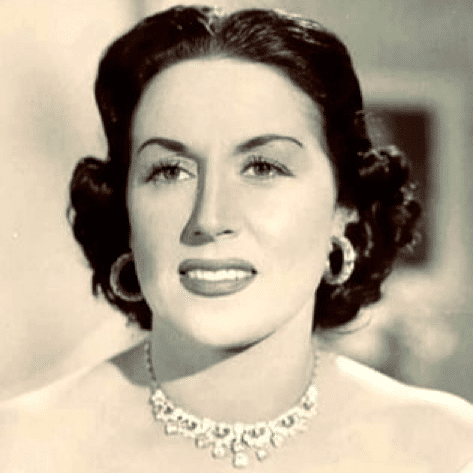
Laylā Murād
Egyptian Actress and Singer
Leila Mourad, the enchanting songbird of Egypt, graced the Golden Age of Egyptian Cinema with her mellifluous voice and captivating performances. Born on February 17, 1918, she rose to stardom as a leading lady and a singer whose melodious voice echoed the complexities of love and life, leaving audiences spellbound. Her iconic roles and musical hits in films like “Ghazal Al Banat” ensured her a permanent place in the hearts of her compatriots. Mourad’s legacy as a symbol of grace and talent in Egyptian arts endures, as she remains a luminous figure in the Egyptian Hall of Fame.
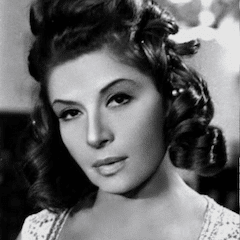
Ṣanāʾ Gāmil
Hellenistic Egyptian Philosopher, Astronomer and Mathematician
Sanaa Gamil, born Thorayyā Yūssef ʿAṭāllah, was a distinguished icon in Egyptian cinema and theater, was celebrated not only for her artistic prowess but also for her heartfelt contributions to religious cinema. She rose to prominence with performances characterized by depth and authenticity, deeply resonating with both critics and audiences. Beyond her secular roles, Gamil was devoted to creating religious films for the Coptic Orthodox Church, a testament to her versatility and commitment to her faith and dedication to using her talents for spiritual storytelling. We commemorate her as a multifaceted legend whose influence spans various facets of Egyptian culture.
فى عصر ذري
لازم نقري
شعر المعري
ولازم نقول
أولى ابتدائي
ألفى وبائي
أكرم آبائي
الناس أصول
كتب الأئمة
جبل وقمة
تطلع يا إما
تنزل نزول
عقلك فى راسك
تعرف خلاصك
تحفظ تراثك
تصبر تنول
فرج قريب
وصبر طيّب
وعود يشيّب
عين العذول
شدّة تزول
لكن تعلم
ولا رجل تطلع
إلا بسلّم
ولا نخل فرع
إلا المقلم
ولا علم ينفع
إن لم تُسلّم
على الرسول
ختامها مسكي
وشجرها مكي
والفرع نابت
من أصل ثابت
وانا نفسي طابت
والمشي طاب لي
والدق على طبلي
ناس كانوا قبلي
:قالوا فى الأمثال
“الرجل تدب مطرح ماتحب”
– فؤاد حداد
من ديوان المسحراتي
Don’t miss out!
Stay up to date with the Society’s upcoming releases and events!